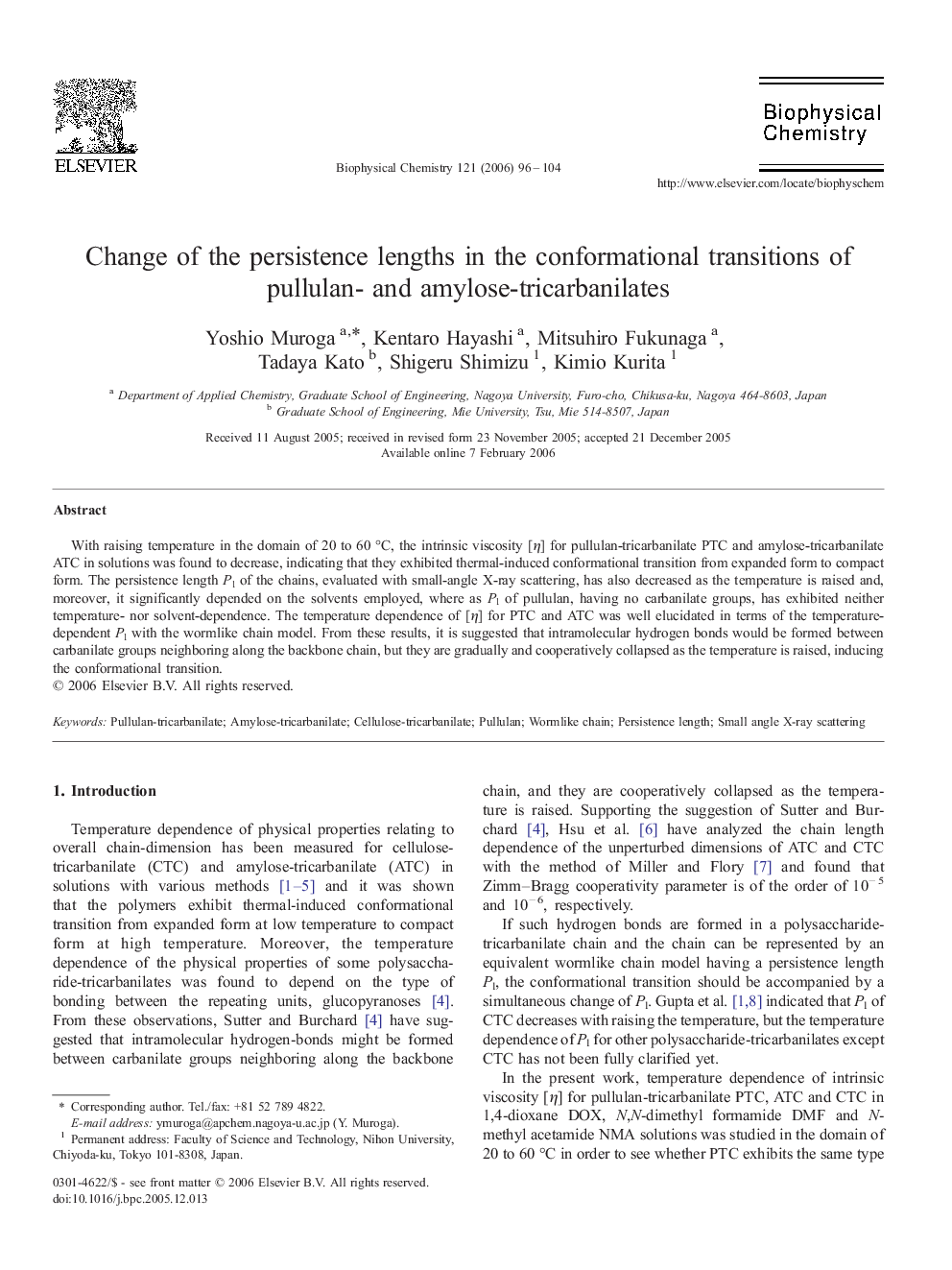| Article ID | Journal | Published Year | Pages | File Type |
|---|---|---|---|---|
| 5372458 | Biophysical Chemistry | 2006 | 9 Pages |
With raising temperature in the domain of 20 to 60 °C, the intrinsic viscosity [η] for pullulan-tricarbanilate PTC and amylose-tricarbanilate ATC in solutions was found to decrease, indicating that they exhibited thermal-induced conformational transition from expanded form to compact form. The persistence length Pl of the chains, evaluated with small-angle X-ray scattering, has also decreased as the temperature is raised and, moreover, it significantly depended on the solvents employed, where as Pl of pullulan, having no carbanilate groups, has exhibited neither temperature- nor solvent-dependence. The temperature dependence of [η] for PTC and ATC was well elucidated in terms of the temperature-dependent Pl with the wormlike chain model. From these results, it is suggested that intramolecular hydrogen bonds would be formed between carbanilate groups neighboring along the backbone chain, but they are gradually and cooperatively collapsed as the temperature is raised, inducing the conformational transition.
